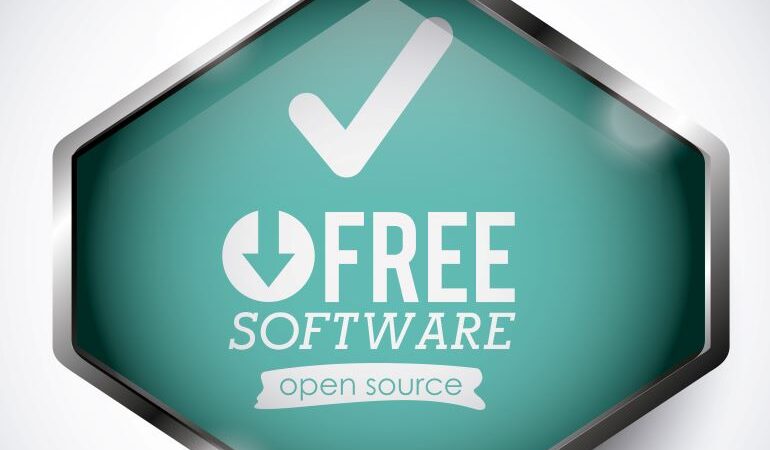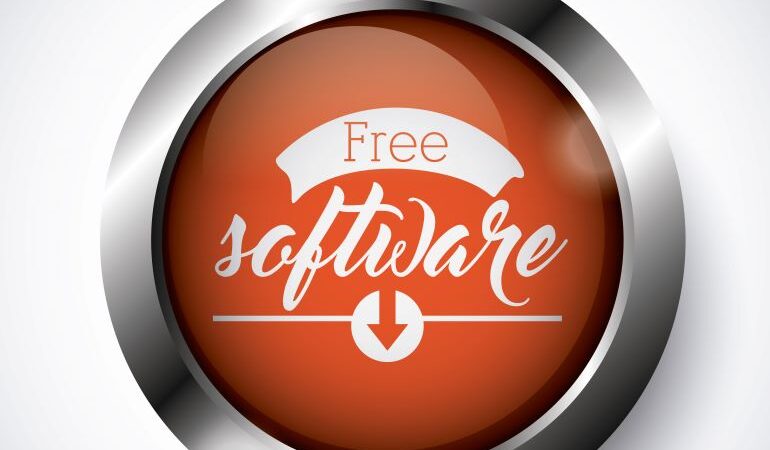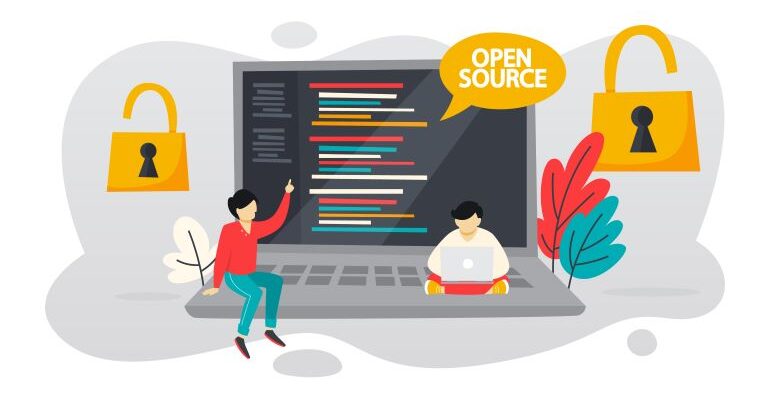Having a central database through which you can track and prioritize leads, manage relationships with customers, and monitor internal processes and the performance of employees is a vital aspect of running a business. When you start a business and have a few clients and jobs, this is a process that can be handled manually. However, as time passes and your business develops, it will be harder and more time-consuming to handle it all manually. And with the right CRM solution for your moving business, you can definitely secure a steady workflow in a controlled environment. However, software solutions can be costly. But that is where the existence of open source CRM software comes into play. In this article, we define this particular solution and explore its advantages and disadvantages.
What is open source software?
Simply put, open source software is software that you can use for free. Its main value comes from the fact that its source code offers free access to anyone, making it easily customizable for the individual needs of each business. Basically, any developer can use the open source code of an existing CRM to make specific changes and create a cheap solution to improve your business.
Upsides of open source CRM solutions

No charges
While you might come across some open source CRM systems that have a symbolic cost attached to them, most are completely free. The original source code is free to use and modify to your preferences. And every now and then, updated versions will come out, usually at no additional cost. So, the only expense you need to worry about here is the cost of hiring a web developer. However, if you already have an in-house developer, this shouldn’t be an issue. On the other hand, if you have some skills in this area, you can always save money by customizing the source code by yourself.
- There are companies that claim to have saved up to half a million dollars worth of investments simply by opting for open source software.
Customization
The ability to customize the software to suit the unique needs of your business is always a welcome notion. And with open source CRM, this is not only a possibility but practically a necessity. In the past, we explained the importance of CRM integration and how it can benefit the overall workflow and growth of your moving company. It is challenging to create a one-size-fits-all CRM software solution like the one MoversTech is working on, specifically designed for the needs of the moving industry.
Therefore, the power to customize open source CRM software is what puts it among such a popular choice for many smaller companies and large enterprises. Either you or a professional developer can alter the source code to match the needs of your business. And there is no need to deal with additional features that you have no use for.
No pending commitment
Certain paid CRM solutions can require committing to the license for a pre-determined period of time. You commit to a paid plan to use the CRM for a limited amount of time. With open source CRM, you have no such commitment. As with any free software, you use it until you no longer have a need for it and simply drop it for a better option.
Easy to manage
Open source software offers a lot of freedom, as we’ve already mentioned. Besides the flexibility to customize and not getting tied up in a contract, there is also the matter of it being easy to manage from multiple locations. Since there is no contract and no feature limitations, you don’t need to keep track of license issues or keep a count of the CRM features that you have. And another important factor is that you can keep many features without having to suffer through additional expenses for keeping them.
The endless potential for upgrades
Since we’re not talking about a developed and licensed tech product here, there is plenty of room for improvisation as time passes. The developer community is bigger than ever and continues to grow. With new and young minds coming into the fold, fresh ideas and perspectives are producing innovative solutions in all spheres of the digital world. Since everyone has access to open source CRM, it means that anyone can troubleshoot potential bugs and implement hacks to provide a better overall user experience. And the result of this “community property” mindset is that it only gets better as time passes by.
Fewer resources required
With open source software, you already have the groundwork laid out for you. So, all that your team has to do is build it up. And that requires fewer resources than having to start from scratch, as is the case with traditional software solutions. It’s really like looking at your housing options – will you choose to build a home from scratch, do a full home remodel, or simply buy a brand new home?
Downsides of open source CRM solutions

Not entirely free
Although it is free in theory, the truth is that there can be a lot of hidden costs that can slip through the cracks. Your access to the source code is completely free, but you need to consider the costs of upkeep there as well, especially if you have your mind set on some advanced customization work. To run the CRM system you will need to invest in server and firewall infrastructure which may cost a huge amount of money.
Another thing to consider here is that quality developers can run up a bill. Although a company might not have to incur any expenses in terms of using the software, a lot will depend on the skillset of the developer in play. For certain businesses, it might end up costing less to simply buy a CRM solution rather than have to hire a high-end developer to tweak it up.
Maintenance
Even an entry-level developer can download and install open source CRM. But what comes after is the tricky part. The upkeeping we mentioned previously and the maintenance of the software is something that takes experience and knowledge. And that is where a lot of businesses end up falling short – not having that technical expertise under their wing. Open source software being as free-built only makes it less user-friendly than your nuanced tailored CRM solution. So, you will end up needing someone to consult with in terms of navigating through the:
- Dashboard;
- Functionalities;
- Bugs;
- Design flaws;
- etc.
No central support system
No commitment goes both ways, so you never really have guarantees that everything will work, and no on-call support team to help you out. Since there is no central customer support team, you might have to go through a variety of chatrooms, forums, channels, etc. to find answers to even the simplest of questions. And since you will have advice from various channels, the potential for things escalating into more confusion is much higher. On the other hand, asking for professional support from freelancers can once again pump up your expenses.
- With a professional paid CRM solution, you have the peace of mind knowing that there is always someone you can turn to in your time of need.
Limited functionality
For businesses that aren’t looking for that much versatility or full coverage in their CRM solution, open source might be a good fit. However, anything more demanding or complex and you won’t be able to get the same level of functionality from open source CRM as you would from a fully optimized CRM. Open source functionalities have their limitations and shortcomings, no matter how much time you invest into it. Once again, turning to the right professional here can fill in those gaps with new features and plugins, but it will end up costing you.
Who stands to benefit most from open source CRM?

Due to its free spirit and real-life testimonies, we can say that practically any type of business can find a good use for open source software. Small companies and startups can find it to be an acceptable temporary solution in the beginning, while looking to refocus their limited capital on other aspects. On the other hand, enterprises with full-scale development teams can make use of the flexibility open source offers in terms of customization.
But just like any company can find benefits in this path, any company can also find itself on a slippery slope. Startups and small businesses might end up paying much more on hiring developers and getting the right support and maintenance done. On the other hand, large businesses might bite off more than they can chew, given that developing apps is nothing compared to creating a fully-functional tailored CRM for your business.
You have to look at both sides of the coin
There are definitely good arguments on either side when it comes to the pros and cons of open source CRM. And despite it all, there are a lot of businesses out there that prefer open source software to paid options. At the end of the day, it a decision best made once you weigh in all your expectations and resources.
- If you have any additional questions, MoversTech is here to offer guidance. Contact us today and learn more about tailored software solutions for your moving business.
Stay Informed
Subscribe for industry
news & updates
"*" indicates required fields

